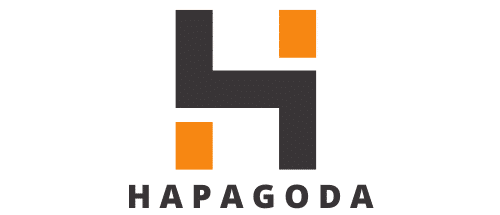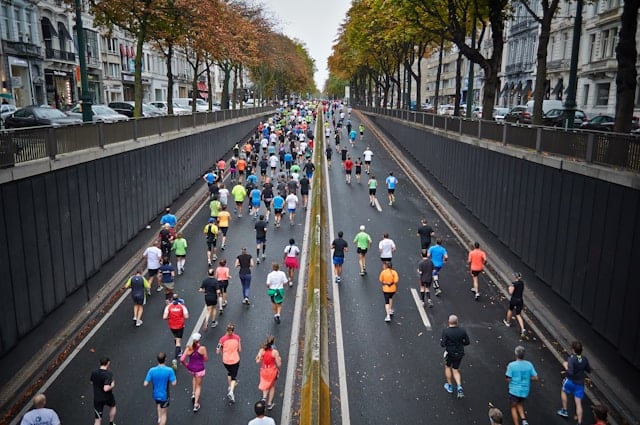Whether you’re gearing up for your first marathon or your fiftieth, one thing is certain: you need to fuel your body properly to achieve your best performance. The right dietary strategy can make a significant difference in your race, particularly when it comes to maximizing glycogen storage. As your body’s primary fuel during high-intensity endurance activities, glycogen plays a key role in maintaining your energy levels throughout a marathon.
But what’s the best way to ensure you’re stocking up on this vital energy source in the days leading up to the big race? Let’s delve into the science of glycogen storage and explore some of the most effective dietary strategies for maximizing your body’s glycogen reserves before a marathon.
A voir aussi : How to Design a Strength and Conditioning Program for Collegiate Cheerleaders?
Understanding the Role of Glycogen
Before we can delve into the best dietary strategies for maximizing glycogen storage, it’s important to understand what glycogen is and why it’s so important for marathon runners.
Glycogen is a form of stored glucose that your body uses as its primary source of energy during high-intensity activities. When you run a marathon, your body primarily relies on glycogen to fuel your muscles. However, your body only has a limited glycogen storage capacity, and these stores can be depleted after about 90 minutes of high-intensity exercise.
Cela peut vous intéresser : How Does Psychological Skill Training Enhance Performance in Elite Golfers?
When your glycogen stores run out, it leads to a phenomenon commonly known as ‘hitting the wall,’ characterized by fatigue, decreased energy, and reduced mental and physical performance. Therefore, one of the keys to maintaining your performance during a marathon is to ensure your glycogen stores are as full as possible at the start of the race.
The Carbohydrate-Loading Strategy
The traditional dietary strategy for maximizing glycogen storage before a marathon is carbohydrate loading. This strategy involves increasing your carbohydrate intake in the days leading up to a marathon to maximize your body’s glycogen storage capacity.
The basic concept behind carbohydrate loading is that by consuming a high amount of carbohydrates, you can ‘trick’ your body into storing more glycogen than it typically would. This is achieved by first depleting your glycogen stores with a period of low-carbohydrate intake and high-intensity exercise, followed by a period of high-carbohydrate intake and rest.
However, it’s important to remember that not all carbohydrates are created equal. To maximize glycogen storage, you should focus on consuming complex carbohydrates, such as whole grains, fruits, and vegetables, which are digested slowly and provide a steady supply of glucose for glycogen synthesis.
Balancing Protein and Carbohydrates
While carbohydrates are the primary dietary focus for maximizing glycogen storage, it’s also important not to overlook the role of protein. Protein is essential for muscle repair and growth, and it can also play a role in glycogen storage.
Recent research has shown that consuming a combination of protein and carbohydrates after exercise can enhance glycogen storage compared to consuming carbohydrates alone. This is because protein stimulates the release of insulin, a hormone that promotes glycogen synthesis. Therefore, including a source of protein in your post-workout meal or snack can help to maximize your glycogen storage.
Hydration and Electrolytes
Hydration is also a crucial factor when it comes to maximizing glycogen storage. Your body stores every gram of glycogen with about three grams of water, so staying well-hydrated is essential for optimizing your glycogen storage capacity.
In addition to water, your body also needs electrolytes to maintain proper fluid balance and muscle function. Sodium, in particular, can help to enhance your body’s ability to store glycogen. Consuming a sports drink that contains both carbohydrates and electrolytes during your training runs can help you to meet your hydration, electrolyte, and carbohydrate needs all at once.
The Role of Timing
Finally, when it comes to maximizing glycogen storage, timing is everything. Your body’s ability to synthesize glycogen is highest in the first few hours after exercise. Therefore, consuming a carbohydrate-rich meal or snack as soon as possible after your training runs can help to maximize your glycogen storage.
Moreover, it’s important to remember that your body’s glycogen storage capacity is limited. Therefore, it’s not necessary – or even beneficial – to consume excessive amounts of carbohydrates in the days leading up to a marathon. Instead, focus on meeting your carbohydrate needs through regular, balanced meals and snacks throughout the day to maintain your glycogen stores at their optimal level.
In conclusion, there are several dietary strategies that can help you to maximize your glycogen storage before a marathon. By understanding the role of glycogen in marathon performance, adopting a smart carbohydrate-loading strategy, balancing protein and carbohydrates, staying well-hydrated, and timing your meals and snacks effectively, you can ensure you’re giving your body the fuel it needs to perform at its best.
Glycogen Storage: Pre-Exercise and Race Day Strategy
To optimize glycogen storage before a marathon, it’s crucial to strategize both pre-exercise and on the race day. Here, the role of carbohydrate loading, or ‘carb loading,’ becomes significantly important.
Carbohydrate loading is a widely recognized method practiced by endurance athletes to maximize muscle glycogen stores. This method typically begins a week before the competition, where the athlete gradually increases their carbohydrate intake while tapering their exercise regimen. The idea here is to consume a high carbohydrate diet that equates to approximately 70% of the total caloric intake or 8-10 grams of carbs per kilogram of body weight per day.
In the initial phase of carb loading, the consumption of low fat, high carbohydrate foods, such as bread, pasta, rice, and cereals, helps in maximizing muscle glycogen stores. These complex carbohydrates are slowly digested, leading to a steady blood glucose level and promoting glycogen synthesis. Meanwhile, it’s essential to minimize the intake of fiber to avoid gastrointestinal distress during the marathon.
On race day, the goal is to top off liver glycogen stores. Eating a high carbohydrate meal 3-4 hours before the marathon can help achieve this. Foods like bagels, waffles, or pancakes coupled with a little protein are some good options. This pre-exercise meal fills up liver glycogen and helps maintain a stable blood glucose level.
During the marathon, if it is expected to last more than 90 minutes, refueling with 30-60 grams of carbohydrates per hour can help maintain stable blood glucose levels and delay the depletion of muscle glycogen. Sports drinks, gels, or snacks rich in carbohydrates constitute an ideal race fuel.
Post-Marathon Nutrition and Conclusion
After the marathon, the focus should shift towards a quick recovery and replenishment of glycogen stores. Consuming a high carbohydrate meal with some protein as soon as possible after the marathon can stimulate insulin release, leading to quicker glycogen synthesis and muscle repair.
Moreover, proper hydration post-marathon is vital to replace lost fluids during the race. Along with water, the intake of electrolytes, specifically sodium, should be ensured to maintain fluid balance and muscle function.
To summarize, the best dietary strategy for maximizing glycogen storage pre-marathon involves a systematic approach of carb loading, timed carbohydrate, and protein intake, and adequate hydration. This strategy, combined with well-planned marathon training, can help athletes avoid ‘hitting the wall’ and achieve their desired performance. It is crucial to remember that each athlete is unique, thereby suggesting that these strategies should be individualized to suit one’s needs, preferences, and tolerance. A registered dietitian or a sports nutritionist can provide personalized guidance to optimize marathon performance.










